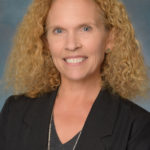Estate Planning Document Execution During Pandemic
Estate planning is more important than ever as COVID-19 continues its spread. Creating a Durable Power of Attorney for Health Care will enable you to set forth your health care desires and enable you to designate the person who will implement those decisions. A funded living trust will provide for the management of assets during your lifetime and will designate the trustee who is authorized to manage those assets. A Durable Power of Attorney will provide for management of non-trust assets.
States generally provide for the formalities for proper execution of those documents. Some (such as deeds) generally require notarization. Others (such as wills) generally require witnessing by disinterested persons (usually two). Some documents, most notably trusts, do not require notarization or witnessing. While attorneys’ offices generally notarize them in case they need to be recorded, it is not necessary. Banks will generally require that powers of attorney submitted to them be notarized.
However, during COVID-19, most people are functioning remotely, through platforms like Zoom or Facetime. But social distancing should prevent most typical witnessing, and requirements for in-person notarization would normally prevent remote notarization.
Many states have adopted online remote notarization provisions which allow their notaries (and perhaps) witnesses to perform their functions remotely. California and some other states have not changed their laws which provide that notaries must require the personal appearance of the signer.
However, California’s Secretary of State has endorsed using remote notarization by out of state notaries from states which authorize remote online notarization. You can have witnesses watch you sign and date your documents remotely – then have them mail you a statement your attorney can provide to attest that they have done so at your request.
Documents properly executed under another state’s laws are valid in California.
Many attorneys’ offices are continuing to work remotely. If you want to adopt documents or change your existing documents, you should contact your attorney regarding options for doing so.
If you have documents ready to execute, you don’t have to wait until the COVID-19 limitations lapse to execute those documents.
Your first choice may be to contact a traveling notary, many of whom are still functioning. They can not only notarize your documents, but also serve as a disinterested witness of your Will. Perhaps you have a non-relative living with you, or can induce a neighbor to act as a second witness while maintaining a six foot distance.
In all events, you should sign and date your documents when they are to your satisfaction. Some, like trusts, are valid when signed, and deeds are valid when signed even if not yet recorded.
When COVID-19 is no longer an issue, you should in all cases contact your attorney to get your documents formally executed with witnesses and notaries. This “belt and suspenders” approach may prevent any disputes in the future.
Michael Hackman and Kira S. Masteller are Shareholders in our Trust and Estate Planning Practice Group.
This information provides an overview of a specific developing situation. It is not intended to be, and should not be construed as, legal advice for any particular fact or situation.

